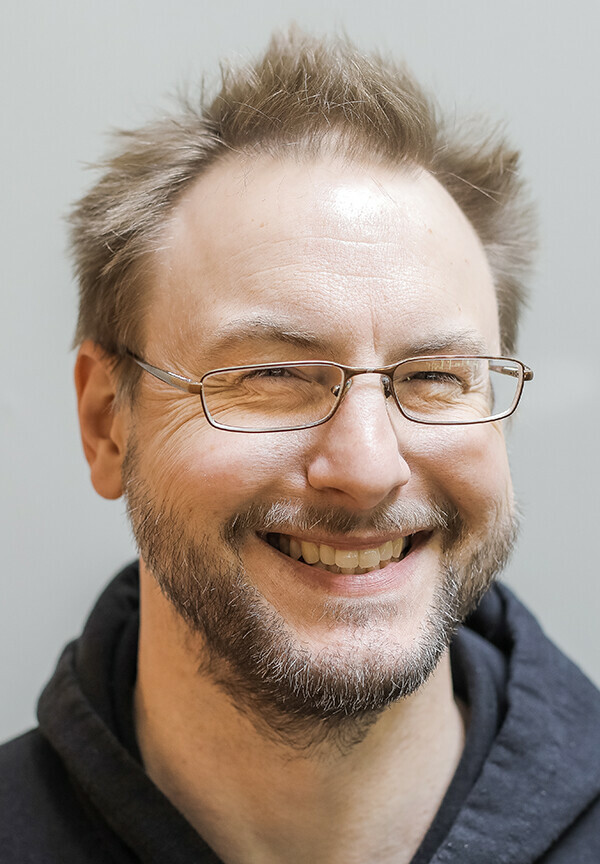COLUMN: Unseen Sacrifices
acknowledging all forms of service around Veteran’s Day
Andrew Patrie, illustrated by Sam Peskie |

It was November, just after Veteran’s Day. We gathered in my dad’s basement, as we had once a month for the past 15 years to play poker. Players had come and gone in that time, but the current incarnation encircling the table included a neighbor, a couple of good friends, my dad, and me. It had been six months since my dad’s diagnosis: Frontotemporal Dementia, and the decline was bare for all to see. When it was my dad’s turn to deal, his friend, Craig, leaned discreetly in and reminded him how many cards remained down, and how many were turned up. I looked away, sought a distraction.
I got up from my chair, crossed the room, and clicked on my dad’s radio. The oldies station he had it tuned to hadn’t yet been hijacked by Yuletide favorites. I returned to the table, the trilling of some song I did not recognize from the ’60s trailing me.
When the sound reached my dad’s ears, he set his cards down and looked up. “I remember the first time I heard this song,” he said. “I was in Germany. In the army.” He pushed back from the table. “I gotta show you guys something.” He shuffled out of sight, down a hall, into a back room. This was an uncharacteristic breach of protocol. My dad had little tolerance for disruptions to the game. Small talk, cellphone show and tell, even bathroom breaks were verboten.
He returned with a plastic storage bin and placed it on the smooth, green felt of the tabletop. He popped the cover, withdrew a large white tapestry, and unfolded it for us, his arms assuming a cruciform pose. The country of Germany appeared to us in embroidered images: iconic structures, roadways, rivers and bridges, women clutching flowers, all painstakingly sewn by someone decades ago. “I was stationed here,” he said, nodding to his left. “They had great beer.”
”
As we re-settled into our game, I was struck by this friend’s kindness. I was also struck by my silence.

andy patrie
author
He refolded the tapestry, set it aside, and reached in for another item. We all leaned forward, as curious about the bin’s contents as we were about his sudden lucidity. In recent weeks, he’d struggled to remember the names of loved ones. Yet the two years he was deployed in Germany, almost 50 years ago, replayed with perfect clarity before us. He pulled out a pair of yellow wooden clogs. They were unadorned, slightly scuffed. The last time I saw them I was a child. I remembered trying them on, my feet too small, how they scraped at the tops of my feet as I stumble-walked. My dad made a motion as if he was thinking of putting them on and we all said, “No! No!” and laughed. He placed his memories back in the bin, and a friend said, “I never knew you were in the army, Rick. Thank you for your service.”
As we re-settled into our game, I was struck by this friend’s kindness. I was also struck by my silence. I thought of the same words, “Thank you for your service,” on my tongue. Why couldn’t I say them?
Growing up, I knew my dad had been in the army. He’d sit our family in front of a projector screen and spin a slide carousel of photos from his time in Germany. I remember one photo of him chomping down on a cigar and holding an M-60 machine gun, the gun almost as long as he was. I remember wearing his fatigues and playing “war” with friends in the woods behind our home. But, growing up, I also knew that, unlike many of his peers who enlisted and ended up shipping over to Vietnam, my dad never saw any combat in Germany. His nostalgia for those days was in stark contrast to someone like his father’s (my grandfather’s) recollections of World War II. My grandfather was part of the second wave arriving at Omaha Beach and never wanted to discuss his service. I remember him raging at his television set on the 50th anniversary of D-Day.
Why was it easy for me to see my grandfather as a veteran and not my own father?
In his memoir Population: 485, author Michael Perry, writing about firefighters and the concept of heroism, says: “Under the supposition that someone is trapped in the bedroom, fighting your way into what turns out to be an empty house is no more or less heroic than fighting your way into one harboring a victim. The difference is one of result, not intent.” Both my father and my grandfather enlisted with the intent of serving their country. And they did. They didn’t get a say in the result of that service. I think of them both today, of the countless men and women like them, and say the words.




















